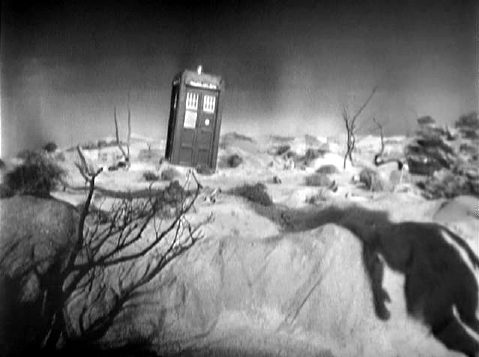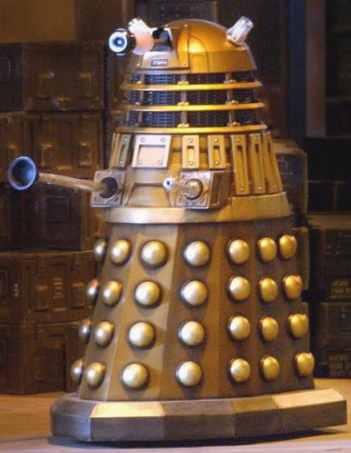by Rhiannon, typos corrected by Stephanie
I've been thinking recently about the Quaker testimony to simplicity. My thoughts originally sprang from the issue of Quaker clothing; some friends requested that I attend Yearly Meeting Gathering, or at least some of it, in the Goth clothing which I wear from time to time. I've agreed to do this as far as I'm able, at least partly because I agree that some Friends will probably be stirred up by this. (I'm also well aware that some other Friends will like it, or not notice, or not care, and that's fine by me.)
However, before you set out to purposefully stir up elderly Friends, it's as well to check that when they come to tell you how terrible you are, you've got something solid on your side. (I've been announcing the full name of my MA course recently ('Gender, Sexuality, and Queer Theory'), which produces lots of frowns and questions people aren't comfortable asking. I try and have answers ready for at least the ones they do ask.)
To that end, I spent a little while trying to work out on what grounds Friends might object to Goth clothing. I'm pretty comfortable dealing with people who think that Goths are all into Satanism (I'm not a Satanist, but I am a Pagan Quaker, and I've had a bit of practice explaining why Pagans aren't Satanists and why Quakers can also be Pagans). If people think I'm morbid because I wear all black, so be it; if they say it to my face, I'll talk about appreciating life more when you see death as simply part of the cycle, and perhaps I'll mentioned Jesus, and/or my hilarious cuddly toy raven, depending how the conversation goes.
I did come up with one objection, though, which I thought had some merit. This is the objection from simplicity, so to speak: wearing Goth clothing is not in line with Quaker beliefs because it sets out to be the exact opposite of simple. Covered in beads and sequins and velvet and lace, how can you be keeping the testimony to simplicity?
Well, there's one angle from which I have to; unlike many better-off Goths, who buy specially made clothing from expensive stores, I am a student on a student budget, and I pick up pieces from markets and second-hand stores, spending less on clothing than I would if I bought non-Goth new clothes, preventing wearable clothes from ending up in landfill, and not supporting companies who underpay their workers in order to keep costs down (as I'd probably find I had to if I bought new, as my budget won't run to Fairtrade Organic cotton).
There's another, more interesting, angle, from which I am choosing not to abide by the testimony to simplicity. I'm choosing not to abide by the testimony to simplicity, at this time, because it comes into conflict here with what I consider to be a more central testimony: the testimony to honesty.
How can that be? It happens at two levels. Firstly, in the matter of the way I dress. I choose ways to dress which to some extend express my opinions, my aesthetic judgements, and the place I see myself as occupying in society. Yes, I can make it more or less obvious as I choose, but there are some extremely constant features: my skirt is below my knees, my hat-brim shades my eyes, some item of clothing is black. If I were to set out to dress otherwise, to try and be more conventional (and don't say to me all Quakers are unconventional; we have our own internal conventions. Go to Meeting for Worship on a sunny summer Sunday and count the pairs of sandals worn with socks), that would be a dishonesty about myself. Furthermore, if I were to change my manner of dress specifically for Yearly Meeting Gathering, that would be, effectively, a lie.
Secondly, the testimony to simplicity comes into conflict with the testimony to honesty at the level of ideas. When I look around me with the eyes of a philosophy student, I see so much over-simplification that I sometimes simply laugh at it. Now, there are times when it's fine to simplify your point or your sentence in order to better communicate the important part of it. 'Switch off the lights' doesn't need a detailed discussion of environmental issues every time.
However, in discussions of important and complex issues, a series of simplified slogans is not enough: if you ask, for example, "why do our Meetings not contain a wider variety of people?" then simply trotting out stereotypes ('students don't come because they're all hung over on Sunday morning', 'nobody comes from that part of town because they're all Muslims', 'you only get Guardian readers at Meeting') doesn't help at all; you're losing truth in your simplification. What if the students aren't coming because they don't know where it is, have never met at Quaker, or would prefer to meet on campus in the Meeting which ran for years but was chronically under-supported; what if there's a Muslim who'd like to come to Meeting, if only s/he knew what it was, a previously Quaker person who happens to have moved into the majority Muslim area, or people living there who'd come to Meeting if only the buses ran on Sundays; what if there are non-Guardian readers out there, or even visiting your Meeting already, who'd be Quakers if they felt supported? I feel sure you can think of cases of this sort which are known to you already.
By wearing Goth clothing to Yearly Meeting Gathering, then, I'm being true to myself, and also asking F/friends to look twice at me, and think about my choices, and say: just because she doesn't look like a Quaker, doesn't mean she isn't one.
Now I've proved I should be doing this, I'd better work out how to pack my best dress.

















